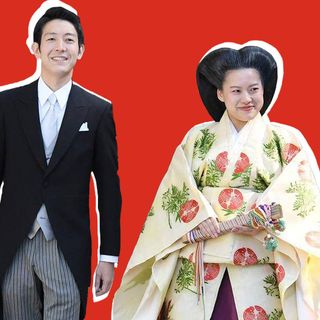
Should Priyanka Chopra Have Worn That Marchesa Dress?
#MeToo makes us question the clothes on our backs, the movies on our TV.

Priyanka Chopra has been catching flak on social media for her decision to wear a dress by Marchesa to her bridal shower. Marchesa is the fashion label helmed by Keren Craig and Georgina Chapman — the latter of whom had the grave misfortune to be married to Hollywood producer and serial predator Harvey Weinstein.
Weinstein was widely known to be involved in Marchesa’s success — providing financial backing and using his clout to get stars to wear the designs of his wife’s label. Which is why people are questioning PeeCee’s decision to wear a dress by the brand: What do we make of this sign of support?
It’s a question that dogs the aftermath of a movement (#MeToo) with its roots in artistic industries, a movement that has outed powerful men for the despicable use of the same power that has brought the public art and culture. Can we ever watch another Nana Patekar vehicle without feeling dirty? Should we pay money to see a Vikas Bahl film, and line the pockets of a predator? There might be value in MJ Akbar’s books — but who wants to buy them, and fund his legal campaign against the women whom he harassed?
That said, art — movies, books, paintings, fashion — is seldom the product of one person alone; movies have crews and cast, books have editors and publicists; fashion has designers, tailors, stylists and more. Any decision to withdraw from the enjoyment of a product associated with a predator affects innocent people. Is that fair?
#MeToo forces us to ask these hard questions about the art we consume, where it comes from, who profits from it — and what message our consumption of it will send to industries known to turn a blind eye to women’s abuse. Craig and Chapman aren’t predators, but they happily supported Weinstein’s abuse of power in strong-arming actresses to wear Marchesa designs — the same kind of abuse of power that Weinstein wielded on his own behalf to harass and assault more than 80 women. To benefit, and to benefit happily, knowingly and financially, for years from that kind of coercive behavior, justifies the question: Should Priyanka Chopra have worn that brand?
For many other actresses, the answer seems to be no; Marchesa has seen a marked drop-off on the red carpet since Weinstein’s predatory behavior was made public. “No star is ever going to want to wear the brand again,” a New York fashion publicist told Hollywood Reporter last year. “He was the mastermind behind Marchesa — orchestrating deals and using his influence in terms of the celebrity connections for her on behalf of the brand,” says an L.A. fashion publicist, in the same report. “They both benefited from [their] relationship, but she certainly knew about his bad behavior.”
Priyanka Chopra has defended her decision to wear Marchesa, saying: “Georgina’s a friend of mine… And it’s not her fault. I don’t think it’s right to take it out on a selfmade woman what somebody in her life did. That’s the wrong attitude. I’ve known her for years, and that was a beautiful gown, and deserved to be worn by a brideto-be. It made me feel like a princess. It was the right choice.” [sic]
It’s not a question of fault; it is a question of complicity. In her self-making, Chapman made choices to overlook and benefit from her husband’s abuse of power. And in wearing the Marchesa dress, Chopra made a choice to support Chapman and overlook her complicity. Was it the right one? That’s for the paying, movie-going public to decide.
Liesl Goecker is The Swaddle's managing editor.
Related


Jameela Jamil’s i_weigh Is the Instagram We All Need Right Now
